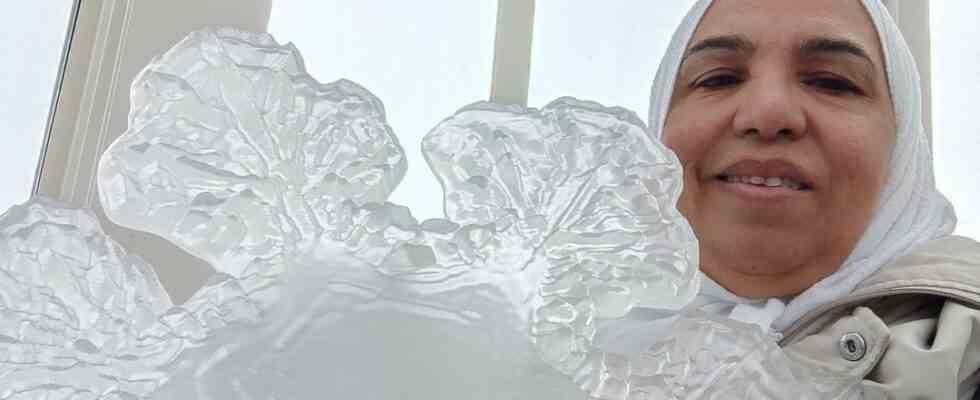Anyone who hears Sahar S.’s story can only shake their heads. On the one hand, out of horror at the suffering her family had to experience before she could start a new life in German safety. On the other hand, however, also about how difficult it is sometimes made for refugees to gain a foothold here independently of state aid. Sahar S., 51, worked as a teacher in Homs and ran a school for three years. But the third largest city in Syria was considered a rebel stronghold against the Assad regime. Its troops have bombed Homs to rubble since 2015.
Sahar S. and her husband, parents of four children, did what many mothers and fathers did in this situation: In order to get the three sons to safety, they scraped together their money and paid a smuggler who took the young men to Europe should bring. The escape failed, the overcrowded rubber boat landed in Egypt. Here the three were put in prison because they were considered stateless. Because the S. family does not have Syrian passports, having once sought protection in neighboring Israel as Palestinian refugees.
So now escape again. This time with a happy ending, because the three sons were brought to Germany via a federal government resettlement program. Sahar S., her husband and their then 14-year-old daughter were allowed to follow to Munich via family reunification in 2016.
Sahar S. still stirs up the memory very much. “If I think about it, I get high blood pressure right away,” she says. Her husband survived these trying times even less well in terms of health. He has a heart condition and now he also needs an eye operation.
At least the children are all on the right track. The first son is studying education, the second is doing distance learning and the third is training as a painter. The youngest child, a daughter, has meanwhile found an apprenticeship in a doctor’s office.
Despite her Abitur and university certificates, she is not allowed to start training as a nanny
Sahar S. was certainly able to keep her warm-hearted happiness for this reason. She learned German very well a long time ago. During the interview there is just a little mix-up of words. When Sahar S. talks about her trip to the Zugspitze, from which the photo in this article comes, she accidentally says “Spitzzug. Or what is the name of the very big mountain?” But then she can laugh heartily about it.
She is happy about her job as a childcare assistant in the day care center of an international school in Munich. The fact that she taught English in Syria also helps her to communicate with her little protégés. She likes to travel an hour to work every day by bus, subway and tram and an hour back again. What she doesn’t understand at all, however, are the reasons why she is now being denied a training as a nanny. “I submitted my high school diploma and my university degree,” says Sahar S. “But you also want to graduate from the 9th and 10th grades.” This is what the certificate recognition office requires, confirms her supervisor from the social department. Problem: The school in question was 40 years ago, the school in her home town no longer exists.
The plan now is to catch up on the German secondary school leaving certificate with an external examination. “Then I’ll get an apprenticeship as a nanny,” says Sahar S. “After that, I’ll earn more, which is also important for my pension later. I still have to work for at least eleven more years.” But because she can only learn alongside work, she needs tutoring. Here she would be happy about a support, “then I can do it too”, Sahar S. is confident.
Here’s how you can donate
Advent calendar for good works from the Süddeutsche Zeitung eV Stadtsparkasse Munich, IBAN DE 86 7015 0000 0000 6007 00, BIC SSKMDEMMXXX.
Donations to the SZ Advent calendar are tax deductible. For transfers of more than 300 euros, we will send you a donation receipt. www.sz-adventskalender.de

